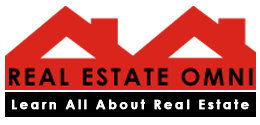What Does Escrow Mean?

Where mortgages are concerned, “escrow” and “escrow accounts” refer to two slightly different concepts. Escrow is the process by which a neutral third party mediates a real estate deal, holding money and property “in escrow” until the two sides agree that all the conditions are met for a sale to close. By contrast, an escrow account is usually an account that helps to manage a mortgage borrower’s annual tax and insurance costs.
Escrow refers to a third-party service that’s usually mandatory in a home purchase. When a buyer and seller initially arrive at a purchase agreement, they select a neutral third party to act as the escrow agent. The escrow agent collects what is known as “earnest money” from the buyer: a deposit that is equal to a small percentage of the sale price. In exchange, the seller takes the property off the market. Until the final exchange is completed, both the buyer’s deposit and the seller’s property are said to be in escrow.
Related: How to Avoid Closing Delays in Escrow
How Do Escrow Accounts Work?
When you obtain a mortgage loan from a bank or direct lender, you also receive an escrow account that helps you pay your property taxes and homeowner’s insurance premiums on time. Even though these costs are paid on an annual basis, your lender will require you to pay a monthly fraction towards each cost and accumulate the balance in your escrow account. This ensures that these expenses get paid on time every year.
Mortgage lenders require borrower escrow accounts in order to minimize the risk that you fall short of your financial obligations as a homeowner. In a foreclosure, unpaid taxes or insurance can result in liens that make it harder for the mortgage lender to recover the original loan. This creates a strong incentive for lenders to keep their borrowers on track with escrow accounts that smooth out the non-mortgage costs of owning a home.
How Much Do Escrow Fees Cost?
Just like any other service provider involved in a real estate deal, the escrow agent will need to be paid a fee. Escrow services for a home purchase typically cost 1% to 2% of the final price. However, escrow fees are one of the many expenses that are negotiable between the buyer and seller. This means that you can try asking the other party to foot part or even all of the escrow fee, depending on local rules or the current market conditions.
KV Core Agent John Kinnunen says, “Escrow plays a role in both your initial home purchase and the ongoing monthly mortgage payments that follow. Escrow agents exist to monitor and help fulfill the conditions of the sale, such as the buyer’s “earnest money” deposit for a percentage of the sale price.”
Additional Tips on Real Estate
10 Insider Tips on Finding the Perfect Location for Your Business
